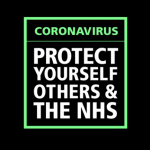If you think you have Coronavirus – how to make the most of your consultation with your GP
Most appointments are now being done by telephone or another IT platform, such as Skype. Advice has come from the Royal College of General Practitioners so that GPs can make the most of the consultation that they are having with their patients, who think they might have Coronavirus. Here are our top tips for you:
- Pre-planning
You won’t know when the GP is going to call, but you can prepare for the call. Write down the questions you have and keep them by the phone. What would be a good outcome for you from the call? What do you want to know? This is your purpose. If you have the resources to take a temperature, measure the pulse rate, do a peak flow (asthma), blood sugar test (diabetes) then you could have this information ready. It’s also helpful to have a list of current medications that the patient is taking. - Beginning the conversation
Tell the GP who you are, what your role is (patient, caregiver), where the patient is, and what the purpose of the call is. - Information needed
Describe the symptoms. Are they consistent with Coronavirus? Does the patient have any pre-existing conditions such as COPD or asthma that could be causing the symptoms, or that could place the patient at increased risk of deterioration?
You are in the best position to know if you or the patient is ‘uncharacteristically unwell’, i.e. not in the way they usually are when they’re ill. If you have specific information about deterioration share it with the GP. For example, have you or the patient stopped doing anything they usually do? Do you or the patient sound breathless or unable to complete sentences without pausing for breath? - Advice given
The GP will decide if it is appropriate to manage this by telephone. Guidance they have is that it is OK to manage by telephone if:
- the diagnosis is fairly clear;
- the duration of illness is short (most patients should show some improvement over a 7-day period);
- there are no ‘red flags’, and the patient seems in reasonable condition,
- you are reassured and comfortable with the advice given.You will be given clear advice about staying at home. The latest advice is here Government’s ‘stay at home’ guidance.
In summary, the advice is:
- Stay at home for 7 days.
- As far as possible, keep a distance from other people in the house.
- Wash hands regularly with soap and water for 20 seconds, or use hand sanitiser
- Take symptomatic remedies such as paracetamol.Tell the GP what other medications the patient is currently taking, as some may need to be altered during a period of fever and possible dehydration.
5. Safety Netting
Ask what would be signs of getting worse, and what to do in that event. You could ask what signs to look out for, that might suggest things were getting worse.
6. Face to face consultations
If the GP thinks it appropriate then they may ask for a face to face consultation. This might be because they are not sure of the diagnosis or are unsure about the cause or the severity of the symptoms. Ask how to manage this and what to expect.









